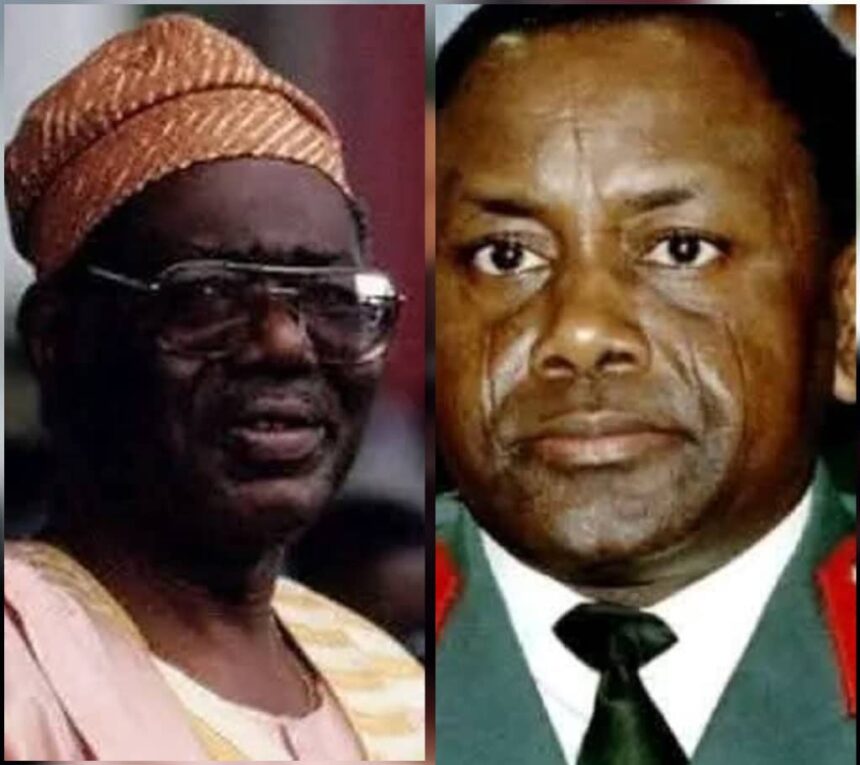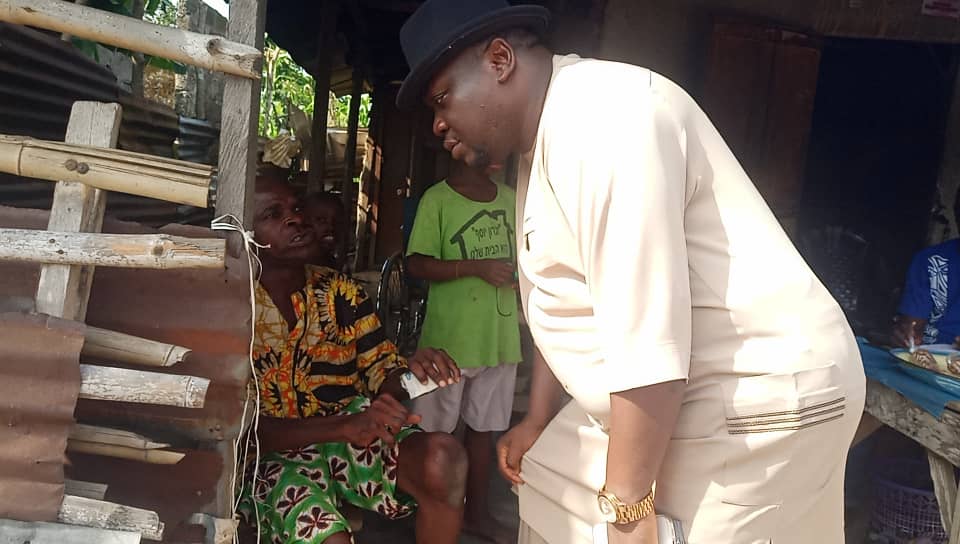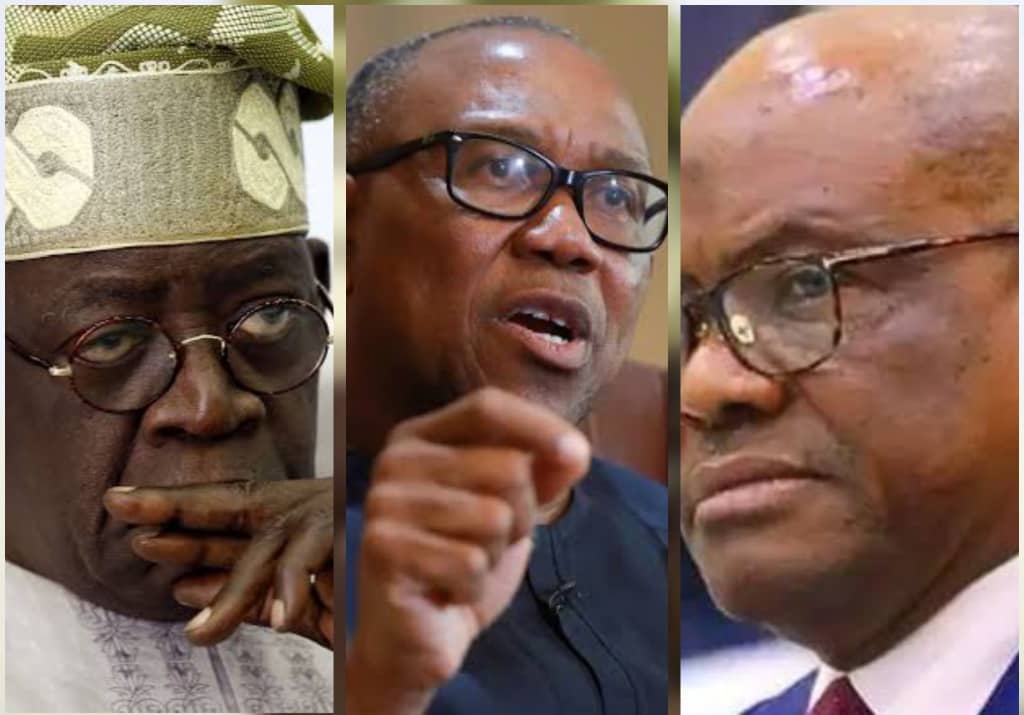Today, June 12, 2025, marks exactly 32 years since Nigeria held what is widely regarded as the freest, fairest, and most peaceful presidential election in its history.
But it is also 32 years since that same election was annulled, triggering a national crisis and setting off a chain of events that would forever shape Nigeria’s democracy.
On June 12, 1993, millions of Nigerians went to the polls in an election organized by the military regime of General Ibrahim Badamasi Babangida (IBB). The vote was intended to end a long period of military dictatorship that had begun with the 1983 coup and culminated in IBB’s rise to power in 1985.
READ ALSO: BREAKING: NANS Suspends June 12 Protest
The two official political parties were: Social Democratic Party (SDP) – represented by Chief Moshood Kashimawo Olawale Abiola, a wealthy businessman, publisher, and philanthropist.
National Republican Convention (NRC) – represented by Alhaji Bashir Tofa, a wealthy Northern Hausa businessman and philanthropist also.
Nigerians, tired of authoritarian rule, came out in large numbers. Over 14 million voters, cutting across ethnicity, religion, and region, participated peacefully. The election was conducted using the Option A4 open ballot system, which made rigging very difficult and increased transparency.
Despite religious tensions and regional suspicions, Abiola won a broad national mandate. He even defeated Tofa in his own home state of Kano, a political miracle by Nigerian standards.
Just when Nigerians were celebrating this democratic milestone, a political earthquake hit. On June 23, 1993, eleven days after the election, General Babangida annulled the election, citing “electoral irregularities,” security concerns, and judicial challenges.
But many Nigerians saw through the excuse. It was clear that powerful interests within the military were uncomfortable with Abiola’s impending presidency.
The annulment led to massive national outrage, especially in the South-West, Abiola’s political base. Violent protests erupted. Civil society groups, professional associations, and students began nationwide demonstrations.
Under growing pressure and unable to manage the crisis, Babangida “stepped aside” on August 27, 1993, handing power to an unelected Interim National Government (ING) led by Chief Ernest Shonekan. But this arrangement lasted only three months.
On November 17, 1993, General Sani Abacha, then Secretary of Defence, overthrew Shonekan in a bloodless coup and took over as Head of State. He quickly abolished all democratic structures, dismissed governors, banned political activities, and clamped down on dissent.
Meanwhile, Abiola, emboldened by support both at home and abroad, continued to insist on his mandate. In June 1994, exactly a year after the election, he delivered the famous Epetedo Declaration in Lagos. In the speech, he declared himself the lawful President of Nigeria, announced the formation of a Government of National Unity, and called on Nigerians to defend their democracy.
Abacha responded swiftly. Abiola was arrested and charged with treason. Over 200 security vehicles were deployed to bring him into custody. He was detained in solitary confinement for the next four years, denied access to family, personal doctors, and legal counsel.
Nigeria remained under iron-fisted military rule until fate intervened.
On June 8, 1998, General Abacha died suddenly in the Presidential Villa in Abuja, reportedly of a heart attack (though theories abound).
Just one month later, on July 7, 1998, M.K.O. Abiola died suddenly in detention while meeting a U.S. delegation. Officially, it was said he died of a heart attack, but many Nigerians believe he was poisoned. His death robbed the nation of the man many believed had won the people’s mandate.
Both deaths marked a turning point.
After Abacha’s death, General Abdulsalami Abubakar assumed leadership and committed to a rapid democratic transition. Between late 1998 and early 1999, general elections were held.
A key figure in that transition was General Olusegun Obasanjo, a former military Head of State who had been imprisoned under Abacha. He was elected president in February 1999 and sworn in on May 29, 1999.
From that year, May 29 became Nigeria’s official Democracy Day.
But many Nigerians especially in the South-West never forgot June 12 and the symbol that Abiola became: a martyr of democracy and national unity.
In 2018, President Muhammadu Buhari signed an executive order declaring June 12 as Nigeria’s new Democracy Day, replacing May 29. He also posthumously awarded M.K.O. Abiola the title of GCFR (Grand Commander of the Federal Republic), Nigeria’s highest national honour usually reserved for presidents.
The change was more than symbolic. It was a recognition that the real sacrifice for Nigeria’s democracy happened not on May 29, 1999, but on June 12, 1993, and in the five turbulent years that followed.
June 12 is no longer just a date. It is a symbol of resistance, sacrifice, and the collective will of Nigerians to choose their leaders. It reminds us of the cost of silence in the face of tyranny, and of the many unsung heroes who marched, protested, and died so that the nation might return to the path of democracy.
M.K.O. Abiola’s campaign slogan in 1993 was “Hope ’93.” While that hope was dashed, the ideals it stood for still echoed loudly: freedom, justice, and the power of the people’s vote.





